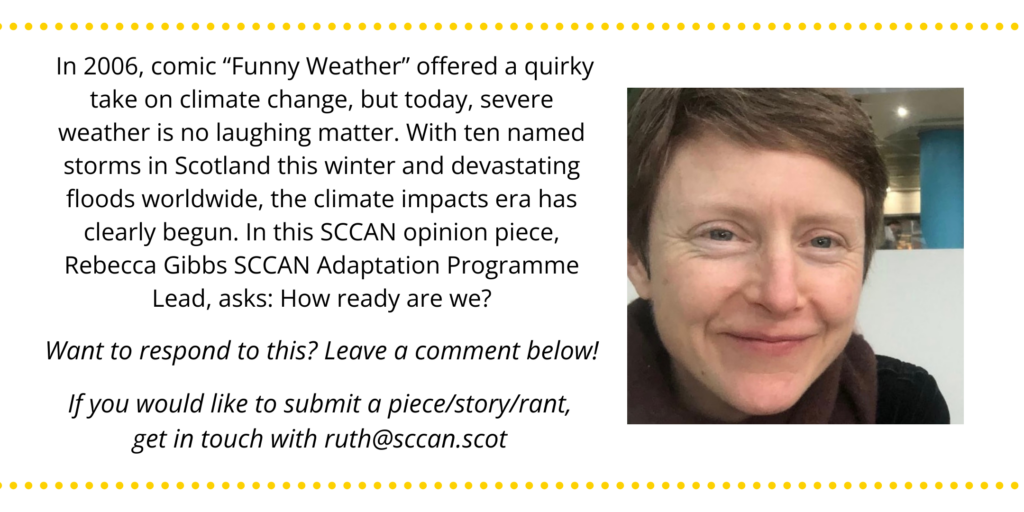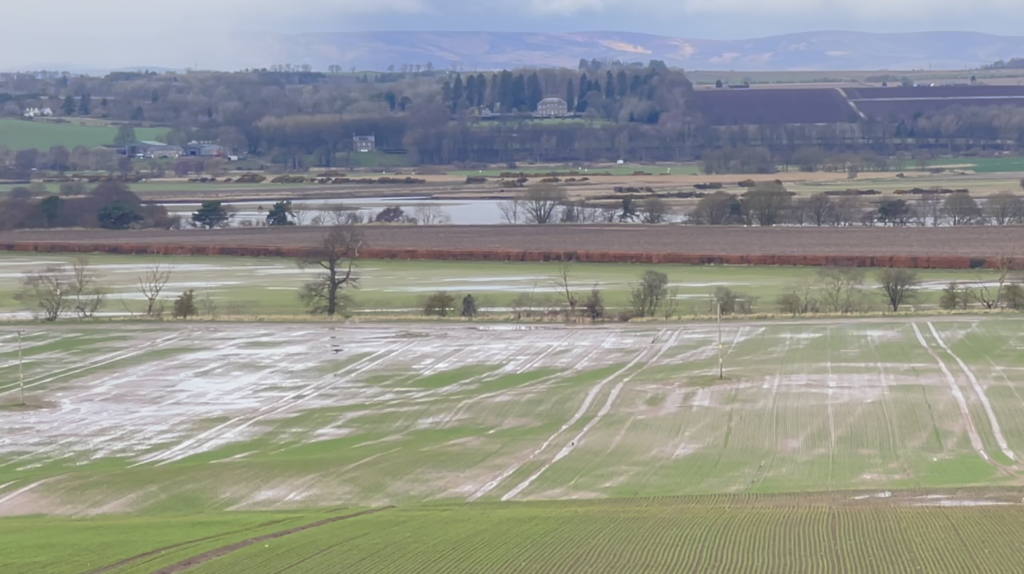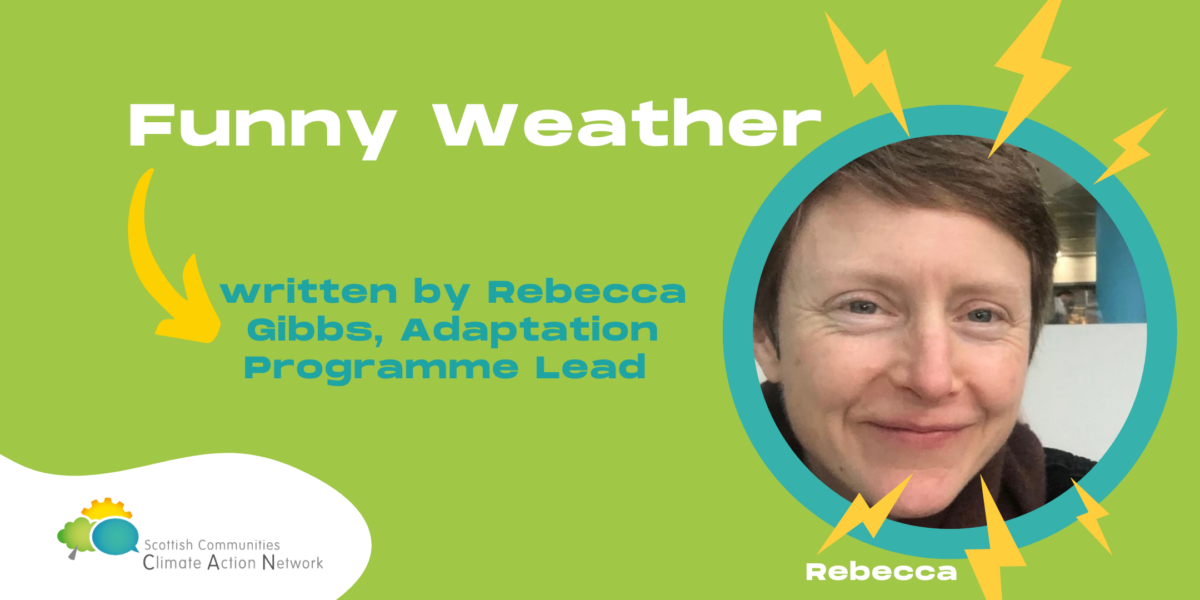
The ‘longer-in-the-tooth’ folk in the climate world might remember the zine Funny Weather: everything you didn’t want to know about climate change but should probably find out from 2006. Back in those days the severe weather events felt fairly abstract. And now here we are.
Funny weather is starting to feel very topical in a way that is, in reality, very short on laughs. Here in Scotland we’ve had 10 named storms this winter, to say nothing of the Brazilian, Afghanistan, German and Saudi floods and the shockingly devastating mudslides in Papua New Guinea.
Attribution of any particular weather event to climate change is a complicated business, but we know that human induced global warming is making just these kinds of dramatic events more likely. It remains to be seen what things will look like once the El Nino weather system is completely in the rear-view mirror, but we seem to be facing squarely into what might be described as the climate impacts era. How are you feeling about this? Do any of us feel ready for the destabilisation that might be coming down the track or is already in evidence in places like Brechin?

In her speech at the Flood Resilient Scotland 2024 conference, Cabinet Secretary, Màiri McAllan, set a clear direction for the management of flooding – one of Scotland’s biggest climate risks. She acknowledged that this work must have communities at its heart, that delivery must move beyond the traditional flood management sector and, ultimately, that we must acknowledge that, for example, the “coastline has to move”.
When I think about local climate risks where I stay what comes into my head is not so much that we should assume that a severe weather event is going to hit our neighbourhood soon, but rather that we can no longer assume that it won’t. Even if we just take flood, there’s a daunting amount to do isn’t there? It’s vital that it is particular to each area and informed and driven by local people. Even for those of us who spend lots of time thinking and working on this, it can be hard to know where to start.
No surprise then, that rushes of joy can be scarce for those working on climate impacts. However, thanks to the good folk at the National Consortium for Societal Resilience, I’ve been getting excited about this elegantly simple community capacity building work in Wellington, New Zealand. I think this approach to emergency preparedness is the most enabling I’ve come across. See what you think. Would this be a good next step locally in Scotland to build on the great national work Ready Scot are doing?
At SCCAN we’re thinking and working on projects to support communities on climate impacts and if you’d welcome a chat about this I’d be delighted to hear from you. You might have thoughts about what you’d like to see on the new adaptation pages of our website or responses to the work researchers have done for SCCAN: a snapshot of perceptions of Scotland’s changing climate and resilience to climate impacts and the mini literature review.
This work is just one part of the the process we have underway to understand what folk are thinking and would like us to do so if you’ve climate impacts on your mind it would be great to know what you’re thinking. If adaptation is anything it’s a ‘better together’ project.

